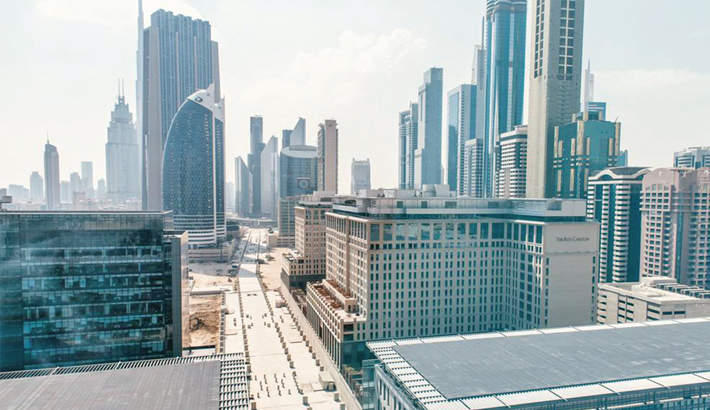StanChart bullish on UAE despite slowing economy

DUBAI: Standard Chartered, the emerging market specialist bank, said the UAE is among the top markets for the financial institution despite the slowdown in the country’s economic growth.
Like Hong Kong and Singapore, the UAE is a trading hub with a large expat population, said Karen Fawcett, the head of retail banking for the London-based lender, reports The National.
“The UAE Singapore and Hong Kong are a group of markets which are very interesting to us because they are hub markets,” she told The National in an interview.
“They are special markets in terms of their trading hubs. They are places which attract a lot of expatiates to these financial centres. They attract a lot of the type of profile clients that we want and we’ve been in these markets for a very long time. It’s among our strong markets.”
Standard Chartered has faced tough times in many emerging markets since 2014, when the price of oil collapsed.
However, this year there has been an improvement in the economies of many developing nations, including the UAE where despite the economic slowdown there has been an amelioration in consumer banking.
Still, there are signs of ongoing pressure for the bank in the region.
And while the bank has not yet released its second quarter earnings, it said in April that operating income in the Middle East and Africa fell by 3 per cent in the first quarter amid currency devaluations in Africa and lower financial market income from the Middle East.
Operating income fell to US$686 million in the first three months of the year compared with $709m in the same quarter last year, the bank said.
And in November, the bank announced it was cutting 150 jobs in the UAE amid a lending slowdown.
That announcement was part of a wider cost-cutting plan announced in 2015 when the bank revealed plans to shed 15,000 jobs worldwide after years of losses, but it did not say at the time how many positions would be lost across its local operations.
The lender had been badly hit as the value of most commodities, which underpin the economies of many emerging markets including that of the Arabian Gulf, had fallen sharply.
Some of those commodity prices are starting to recover but the bank is not relying on a recovery of those prices alone and is taking measures to cut costs. This includes trimming its branch networks in an age when more of the affluent customers Standard Chartered is chasing eschew going to the bank and prefer to bank on their mobile phones.
Ms Fawcett said that banks now realise that with fewer people using branches that it is better to have smaller branches in key locations where people spend money, such as shopping malls.
“We’ve closed more than 10 per cent of our branches in the last two years,” Ms Fawcett said, “and rationalised about 30 per cent, shrinking, changing the format.
“Client behaviour is changing so we’re investing in the things that people want.” In May Shehzad Hameed, the head of retail banking at Standard Chartered in the UAE, said that sales of its retail products are growing at a strong pace that should stay that way all year long.
“Sales have had double-digit growth in the first quarter of the year,” Mr Hameed said. “We expect this to sustain throughout the year. Last year was a tough year for the retail business.”
In April, the global consultancy Alvarez & Marsal, in its inaugural report on the UAE banking sector, found increasing signs of recovery following the tough times.
“The good news is we are seeing signs of this downward cycle bottoming out,” said Saeeda Jaffar, the man-aging director at Alvarez & Marsal.
News:Daily sun/31-jul-2017Other Posts
- BB resumes selling US dollar to stabilise exchange market
- SM Amzad Hossain, Chairman of South Bangla Agriculture and Commerce Bank Limited, inaugurating its 56th branch in Kushtia town on Saturday. Md Rafiqul Islam, CEO of the bank and local elites were present.
- Islami Bank opens branch at Hemayetpur
- NRB bank begins journey in Rajshahi
- Saudi central bank reserves up for 1st time




Comments